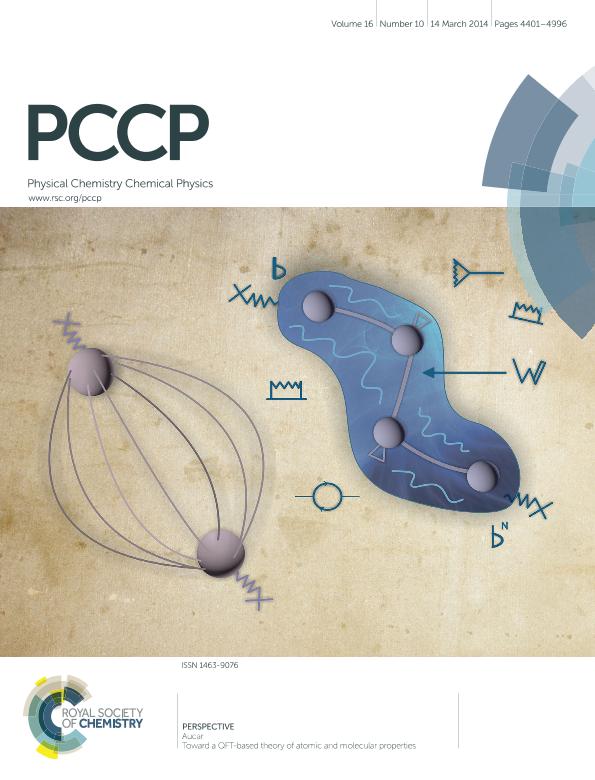Artículo
Toward a QFT-based theory of atomic and molecular properties
Fecha de publicación:
03/2014
Editorial:
Royal Society Of Chemistry
Revista:
Physical Chemistry Chemical Physics
ISSN:
1463-9076
Idioma:
Inglés
Tipo de recurso:
Artículo publicado
Clasificación temática:
Resumen
The search of a QED-based (and then QFT-based) formalism that brings solid grounds to the whole area of relativistic quantum chemistry was just implicit in the first decades of the quantum theory. During the last few years it was shown that it is still unclear how to derive a well-defined N-electron relativistic Hamiltonian, and also the way negative-energy states may contribute to the electron correlation. Furthermore the relationship among electron correlation and radiative QED corrections is even more difficult to guess. They are few of the fundamental problems that need to be solved before such a program of research be finished within the wavefunction approach to the quantum physics. The polarization propagator formalism was developed as an alternative approach to study atomic and molecular properties within both regimes, relativistic and nonrelativistic. In this article we expose how far away one can go today working with polarization propagators, till including QED (and afterwards QFT) effects. We will uncover its deepest formal origin, the path integral formalism, which explains why polarization propagators can be written formally the same in both regimes. This will also explain why the NR limit is obtained scaling the velocity of light to infinity. We shall introduce few basic aspects of elementary propagators to show what they have in common with polarization propagators. Then we shall remark the most important news that appears with the last ones. Within the relativistic regime the contributions of negative energy orbitals to the electron correlation are straightforwardly included. New insights on the relationship between spin and time-reversal operators are also given, together with an ansatz on how to consider both, QED and electron correlation effects on the same grounds. We focus here on the treatment of the NMR spectroscopic parameters within such a formalism, that is still not broadly used by the quantum chemistry community. Most of the other response properties can be treated in a similar manner.
Palabras clave:
Path Integral
,
Polarization Propagator
,
Qed
Archivos asociados
Licencia
Identificadores
Colecciones
Articulos(IMIT)
Articulos de INST.DE MODELADO E INNOVACION TECNOLOGICA
Articulos de INST.DE MODELADO E INNOVACION TECNOLOGICA
Citación
Aucar, Gustavo Adolfo; Toward a QFT-based theory of atomic and molecular properties; Royal Society Of Chemistry; Physical Chemistry Chemical Physics; 16; 3-2014; 4420-4438
Compartir
Altmétricas




